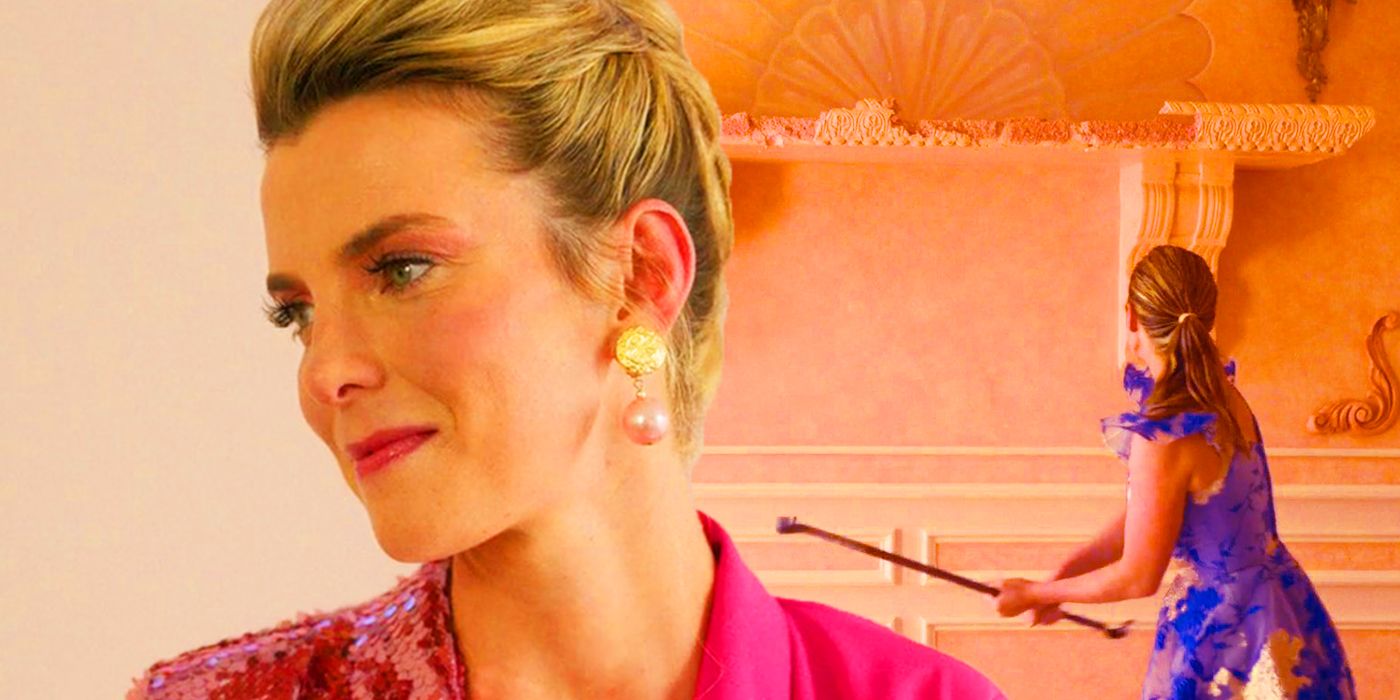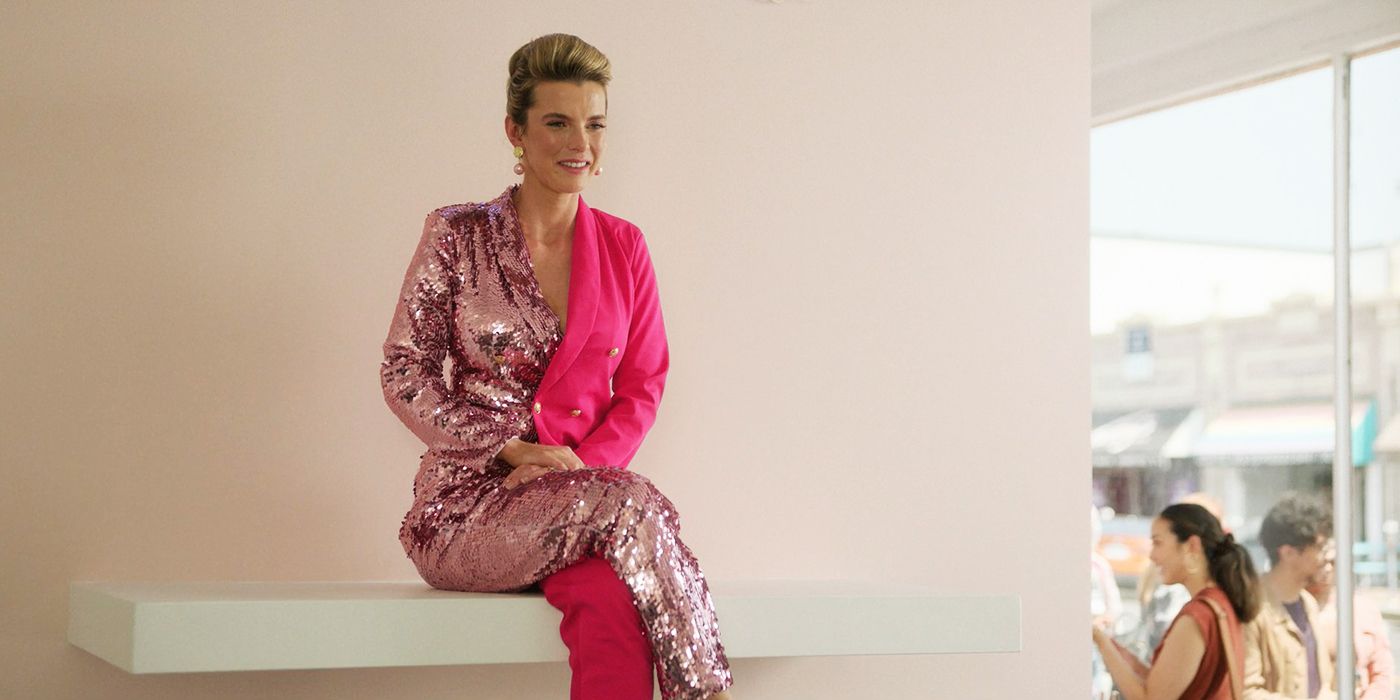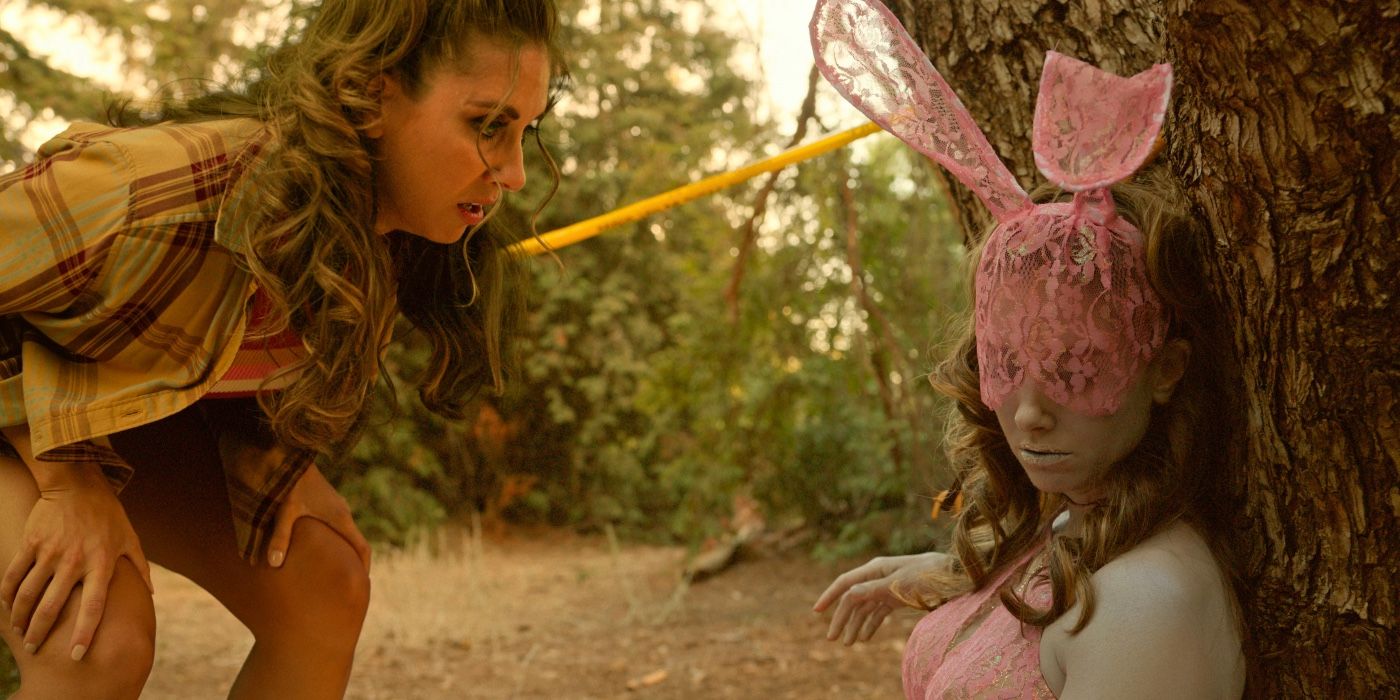Summary
- "The Woman Who Was Kept on a Shelf" in Roar ends with Amelia building her own shelf, highlighting the long-term effects of internalized misogyny and the gradual process of becoming a strong, independent woman.
- Amelia's decision to continue perpetuating the male gaze with her beauty company reveals the ongoing struggle of sexism and internalized misogyny in corporate industries and institutional systems.
- Unlike the generally triumphant endings in other episodes of Roar, "The Woman Who Was Kept on a Shelf" has a bleaker ending to showcase the complexity of feminism and the battle against internalized misogyny that starts with women themselves.
Roar season 1, episode 3 “The Woman Who Was Kept on a Shelf” ends with the story's Roar trophy wife protagonist Amelia simply relocating to a different shelf, making it the only episode that doesn't really end happily. Roar, Apple TV+'s series of eight feminist fables, is based on the book Roar by Cecelia Ahern, a collection of 30 short stories about women's struggles. Although the series depends heavily on magic realism, the stories in Roar are ultimately grounded in social realities, and this can be observed in what happens to Amelia.
Utilizing an ensemble cast for Roar's anthology tales, "The Woman Who Was Kept on a Shelf," introduces Amelia (Betty Gilpin), a woman who was raised competing in child beauty pageants. Later, Amelia becomes a professional runway model – until she gets swept off her feet by the man of her dreams. However, Amelia's husband builds a shelf to turn her into a literal trophy wife, a life that satisfies Amelia at first but ultimately robs her of free will. Eventually, Amelia destroys the shelf and leaves her husband, but something else happens that truly robs Amelia of a happy ending.

The 25 Best TV Shows On Apple TV+ Right Now (April 2024)
From comedies including Ted Lasso and Mythic Quest to dramas including Severance, there are many great TV shows available to binge-watch on Apple TV+.What Happens In The Roar Episode Ending
Amelia Builds Her Own Shelf
"The Woman Who Was Kept on a Shelf" ends with Amelia climbing onto another shelf to promote a beauty brand that bears her name, inferring that she built the business on her own. This ending is an example of how Roar subverts feminist messages in modern media and entertainment. By building her own shelf to sit on – despite having just destroyed the one that was built by her husband – Amelia shows that the process of becoming a strong, independent woman doesn't happen overnight. The one-year gap between Amelia's two shelves is an example of the long-term effects of internalized misogyny.
Internalized misogyny is the subconscious projection and acceptance of sexist ideas by women, and "The Woman Who Was Kept on a Shelf" has a lot to say about it. Throughout her entire life, Amelia has been trained to be a living trophy to satisfy the male gaze. By getting back on a shelf that she built herself, Amelia illustrates how political awareness doesn't just magically occur after one dramatic gesture or event. Even within the boundaries of magic realism, internalized misogyny is an ideological burden that can take years to overcome.
What Amelia Getting On The Shelf Means
The Ending Represents Amelia's Own Internalized Misogyny
Amelia's fate in "The Woman Who Was Kept on a Shelf" shows that although the visibility and presence of female characters/social figures are important, what's also crucial is how women use such opportunities to influence the world — and Amelia chose to continue perpetuating the male gaze with her beauty company, continuing the harmful belief that women can only be as important as they are beautiful. At first glance, Amelia's new shelf is an empowering subversion of her husband's misogynist actions.
However, when a little girl comes into the store and tells Amelia that she's beautiful, the shelf gets in the way of Amelia telling the girl that it's not just about beauty. As the girl walks away, Amelia remains a trophy, but of a different kind. This is the moment in which Amelia realizes that, even though she left her husband and started her own business, she continues to be a living trophy, whose value to the world ultimately depends on just her beauty – a complex take on feminism when compared to other shows like Roar.
The girl shows Amelia that even the next generation of women is still plagued by the idea that beauty equates to value, echoing what Amelia's mother told her when she was a child, “If I had to choose between you being smart or you being beautiful, I would choose beautiful, every time.” Roar season 1, episode 3 explains that sexism/internalized misogyny is an ongoing struggle that has permeated entire corporate industries and institutional systems. Amelia, rather than stay off of the shelf for good, built her own and perpetuated the cycle by inflicting her internalized misogyny on the female population.
How Does This Ending Compare To Other Roar Episodes?
The Finale Is Way Bleaker Than Any Other Roar Ending
"The Woman Who Was Kept on a Shelf" has a much bleaker ending than the other episodes of Roar. Out of all the Roar endings, however, episode 3 arguably tackles one of the most complex subjects in feminism. Most of the series sees women overcoming their struggles, such as Wendy finally being seen and heard in "The Woman Who Disappeared" or Ambia bridling her guilt over becoming a new mother and returning to work. What's stranger is that "The Woman Who Solved Her Own Murder" actually changes its ending from Cecilia Ahern's Roar book to be more positive.
Though "The Woman Who Solved Her Own Murder" was a combination of two stories from the Roar book, the change makes audiences wonder why "The Woman Who Was Kept on a Shelf" needed a down ending when the others were generally triumphant. Amelia's character needed to show how this harmful thought pattern can also be held and perpetuated by women themselves. Amelia didn't conquer the male gaze and remained a trophy in Roar to show that the battle against internalized misogyny starts with women themselves (though this is not to say that men don't share in that responsibility).

Roar
Roar is a black comedy anthology series from the creators of GLOW, Liz Flahive and Carly Mensch. Each episode tells a story about a woman's experiences in everyday life and what it means to be a woman. But certain stories take it a step further by using magical realism and futuristic worlds.
- Release Date
- April 15, 2022
- Cast
- Hugh Dancy , Fivel Stewart , Betty Gilpin , Merritt Wever , Jake Johnson , Issa Rae , Meera Syal , Nicole Kidman , Alison Brie , Cynthia Erivo
- Seasons
- 1
- Streaming Service(s)
- Apple TV+
- Directors
- So Yong Kim



